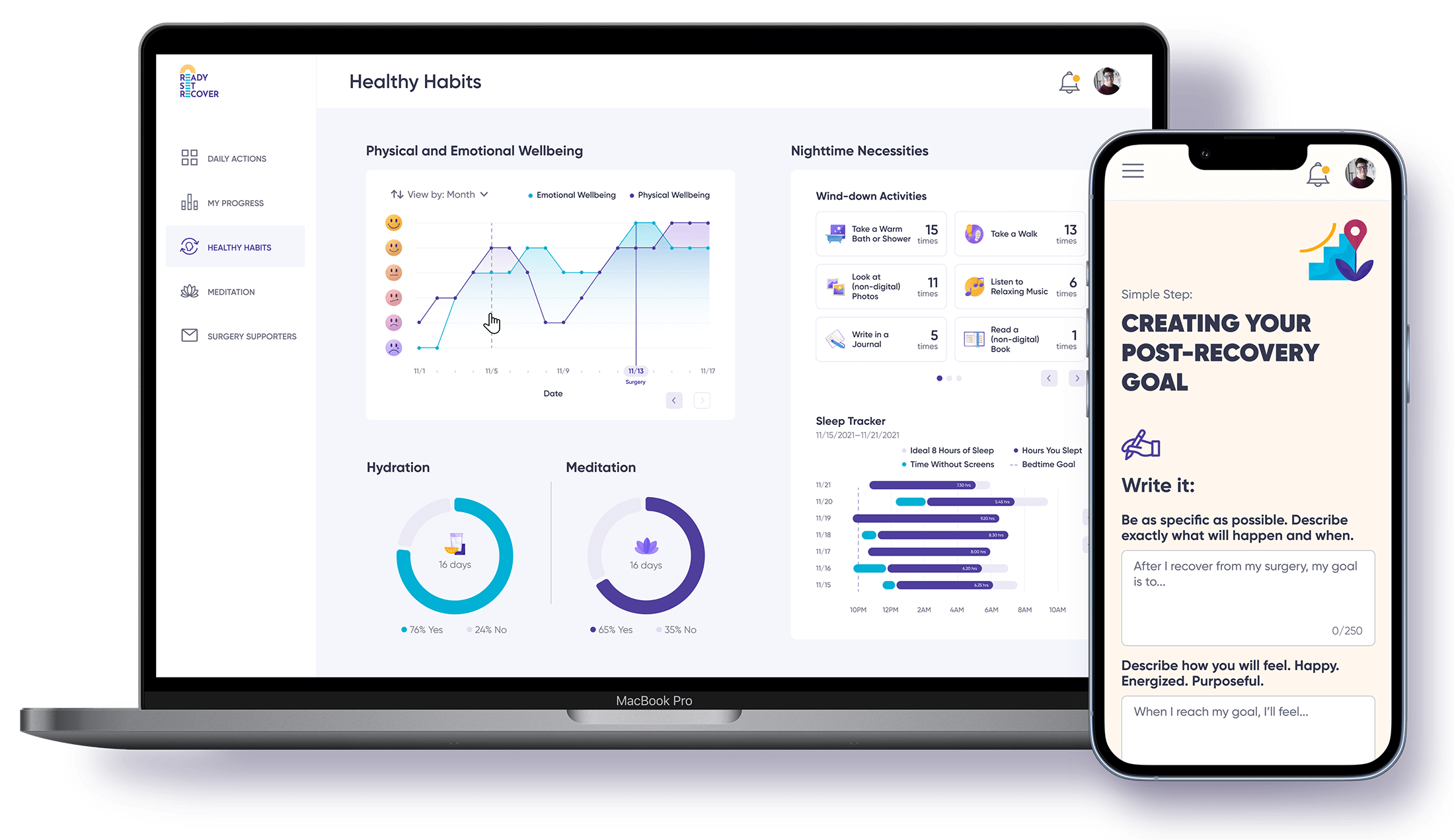Hospital Anxiety? Take Back Control & Breathe Easy


Conquer Hospital Anxiety with Confidence
Hospital anxiety is real. It affects millions, making hospitals feel overwhelming. The white coats, the sterile smell, the beeping machines—just thinking about them can bring discomfort. For some, it’s worse. A racing heart. Shaky hands. Feeling lightheaded. Maybe even panic. And avoiding hospitals only makes it harder when medical care is needed. But here’s the good news: You can take control. With simple steps and the right mindset, you can go from fear to confidence. This guide will show you how.
Types of Anxiety Disorders and Panic Attacks Related to Hospitals: You're Not Alone
Hospital anxiety can manifest in several ways, including panic disorder, generalized anxiety disorder, social anxiety disorder, and specific phobic disorders. These anxiety disorders may cause frequent panic attacks or intense anxiety related to medical care, emergency rooms and hospital visits. By understanding the root cause of your psychological distress, you'll be better equipped to develop an effective treatment plan tailored to your needs. Let's take a closer look at a few of the most common types:
Panic Disorder and Panic Attacks: Taking Control
Panic disorder is characterized by sudden, unexpected panic attacks. These attacks may be triggered by a variety of factors, including the fear of undergoing medical procedures major surgery, or visiting hospitals. Recognizing and addressing panic attack symptoms, such as chest pain, rapid heart rate, shortness of breath, and an overwhelming fear of imminent doom, can empower you to regain control over your anxiety.
Generalized Anxiety Disorder (GAD): Finding Balance

You might be familiar with the mental health-related questions asked during the intake process when you receive a clipboard at your doctor's office (paperwork... 😠). This is a GAD survey. GAD is characterized by chronic anxiety and excessive worry over everyday situations, including health issues, medical conditions, and problems paying medical bills. This anxiety disorder can intensify when faced with a hospital setting or medical professional, causing heightened distress. Gaining insight into your anxiety and developing coping strategies can help you find balance and manage your worry.
Social Anxiety Disorder: Building Confidence

Social anxiety disorder is marked by a fear of social situations, which can include interactions with healthcare professionals, medical appointments, or even waiting in an emergency room. This fear can lead to avoidance of medical care, which can exacerbate existing health issues. Learning to build confidence in social situations and seeking support can help you overcome this fear and access the medical care you need.
Physical Symptoms of Hospital Anxiety: Learning to Cope
Hospital anxiety often presents with physical symptoms such as dry mouth, muscle tension, and sudden symptoms resembling a heart attack. Recognizing these symptoms as anxiety-related and not medical emergencies can help you develop coping strategies, leading to fewer unnecessary ER visits and decreased anxiety.
Addressing Hospital Anxiety and Panic Attacks: Embracing the Path to Wellness

If you or a loved one is experiencing hospital anxiety, remember that seeking help from a mental health professional is a sign of strength. Treatment options can include cognitive-behavioral therapy, medication, or a combination of both. Alongside professional support, consider these practical and uplifting strategies to manage anxiety:
Educate Yourself: Knowledge is Power
Understanding your anxiety disorder, potential triggers, and risk factors can help demystify your fear of hospitals. Knowledge can empower you to take control of your anxiety and seek appropriate medical care when needed.
Develop a Coping Plan: Building Your Toolbox
Create a personalized plan for managing anxiety symptoms and panic attacks, including deep breathing exercises, visualization, or progressive muscle relaxation. Practice these techniques regularly to build confidence in your ability to cope.
Seek Support from Healthcare Professionals: Working Together

Discuss your hospital anxiety with your healthcare provider, who can offer guidance on treatment options and ensure your comfort during medical procedures. Consider seeking a mental health specialist with experience in hospital anxiety or psychosomatic medicine for additional support.
Practice Stress Reduction Techniques: Finding Your Calm
Incorporate stress reduction practices, such as mindfulness meditation, yoga, or journaling, into your daily routine to help manage anxiety levels and cultivate a sense of inner peace.
Gradual Exposure: Small Steps to Big Changes
If your fear is specific to visiting hospitals or undergoing other medical tests or procedures, work with a mental health professional to develop a gradual exposure plan. This may involve visiting hospitals or doctor's offices in a controlled manner to build familiarity and reduce anxiety. Each small step brings you closer to overcoming your fear.
Embracing Additional Strategies to Conquer Hospital Anxiety
In addition to the previously mentioned strategies for managing hospital anxiety, it's important to explore some of the potential underlying causes and additional coping methods.
Identify and Challenge Negative Thoughts: Shifting Your Perspective
Negative thoughts and beliefs can fuel hospital anxiety, such as the fear of receiving bad news, experiencing pain, or facing the unknown. To challenge these thoughts, try journaling about your fears and examining the evidence supporting or contradicting them. By doing this, you can develop a more balanced perspective on your hospital experiences and cultivate a positive mindset.
Establish a Support Network: You Are Not Alone
Having a strong support network can be invaluable in managing hospital anxiety. Share your concerns with friends and family, and consider joining a support group for people with anxiety disorders or similar experiences. Your support network can provide encouragement and understanding during challenging moments, reminding you that you're not alone in your journey.
Understand the Role of Medical Professionals: Building Trust
Developing trust in medical professionals can help alleviate hospital anxiety. Remember that healthcare providers, including doctors, nurses, and therapists, are trained to provide compassionate, patient-centered care. If you have concerns about your treatment or medical team, discuss them openly with your healthcare provider or consider seeking a second opinion.
Prepare for Hospital Visits: Confidence Through Preparation
Feeling prepared for hospital visits can help reduce anxiety. Before your appointment, gather necessary medical records, insurance information, and a list of your current medications. Consider preparing a list of questions to ask your healthcare provider to ensure you get the information you need during your visit. Bringing a trusted friend or family member for support can also provide an extra layer of reassurance.
Utilize Distraction Techniques: Redirecting Your Focus

During medical procedures or hospital visits, distraction techniques can help reduce anxiety. Examples include listening to music, engaging in deep breathing exercises, or using a stress ball. Find a method that works best for you and practice using it in non-medical settings to build familiarity.
Consider Alternative Treatments: Exploring All Options
Complementary and alternative therapies, such as acupuncture, massage, or herbal supplements, may provide additional relief from hospital anxiety. Consult with your healthcare provider before starting any new treatment to ensure it's safe and appropriate for your specific situation.
Create a Comfortable Environment: A Home Away From Home

If you're facing an extended hospital stay, creating a comfortable environment can help reduce anxiety. Personalize your hospital room with familiar items from home, such as photographs, a favorite blanket, or a cherished book. Familiar surroundings can provide a sense of security and comfort.
Overcoming Hospital Anxiety Starts With Small Steps and the Right Support

Hospital anxiety is a complex mental health condition that can have significant consequences for individuals and their overall well-being.
In some cases, it can even progress into depression after surgery, especially if left unaddressed. Understanding this progression is crucial for long-term emotional healing.
But remember, you have the power to overcome it. By understanding the various anxiety disorders and their relationship to hospital anxiety, you can take steps to address your fear and regain control of your mental health. It's essential to consult with a mental health professional to develop a tailored treatment plan that suits your needs. With the right support and strategies, you can conquer hospital anxiety and confidently navigate your healthcare journey.
Embarking on the path to wellness may seem challenging at first, but by embracing a positive mindset and taking small, consistent steps, you'll find that overcoming hospital anxiety is within your reach. Celebrate your progress and remember that you're not alone in this journey. By working together with your healthcare team and professionals, your support network, and implementing the coping strategies outlined in this guide, you'll be well on your way to experiencing healthcare with confidence and ease. If you need more help, please consider Ready Set Recover. It's specifically designed to empower people going through surgery (or really any stress-inducing medical procedure) to prepare for and recover with greater ease, enabling a faster recovery.
Related Articles:
Frequently Asked Questions
What is hospital anxiety, and how common is it?
Hospital anxiety refers to the intense fear or discomfort associated with hospitals, medical procedures, or healthcare professionals. It's a common experience that affects millions of people globally, often leading to panic attacks or physical symptoms. However, it's treatable with the right strategies and support.
What are the symptoms of hospital anxiety?
Symptoms can vary but often include panic attacks, rapid heart rate, chest pain, shortness of breath, muscle tension, and an overwhelming sense of fear. Some individuals may also experience dry mouth, dizziness, or feel as though they’re having a medical emergency when it's actually anxiety.
How can I overcome my fear of hospitals?
Overcoming hospital anxiety involves a combination of self-awareness, coping strategies like deep breathing or visualization, and seeking professional help if necessary. Gradual exposure to hospital environments and building trust with healthcare providers can also help alleviate fears.
Are there specific types of anxiety disorders related to hospitals?
Yes, hospital anxiety can be linked to several disorders, including panic disorder, generalized anxiety disorder (GAD), social anxiety disorder, and specific phobias. Each manifests differently, but all can trigger significant distress related to medical care.
What treatments are available for hospital anxiety?
Cognitive-behavioral therapy (CBT), exposure therapy, and medication are common treatments for hospital anxiety. Complementary techniques like mindfulness, yoga, and relaxation exercises can also support recovery.
Can I reduce my hospital anxiety on my own?
Yes, many individuals find relief through education, self-care techniques like mindfulness or journaling, and gradual exposure to medical environments. However, seeking professional guidance is recommended for those with severe anxiety to ensure a comprehensive treatment plan.






